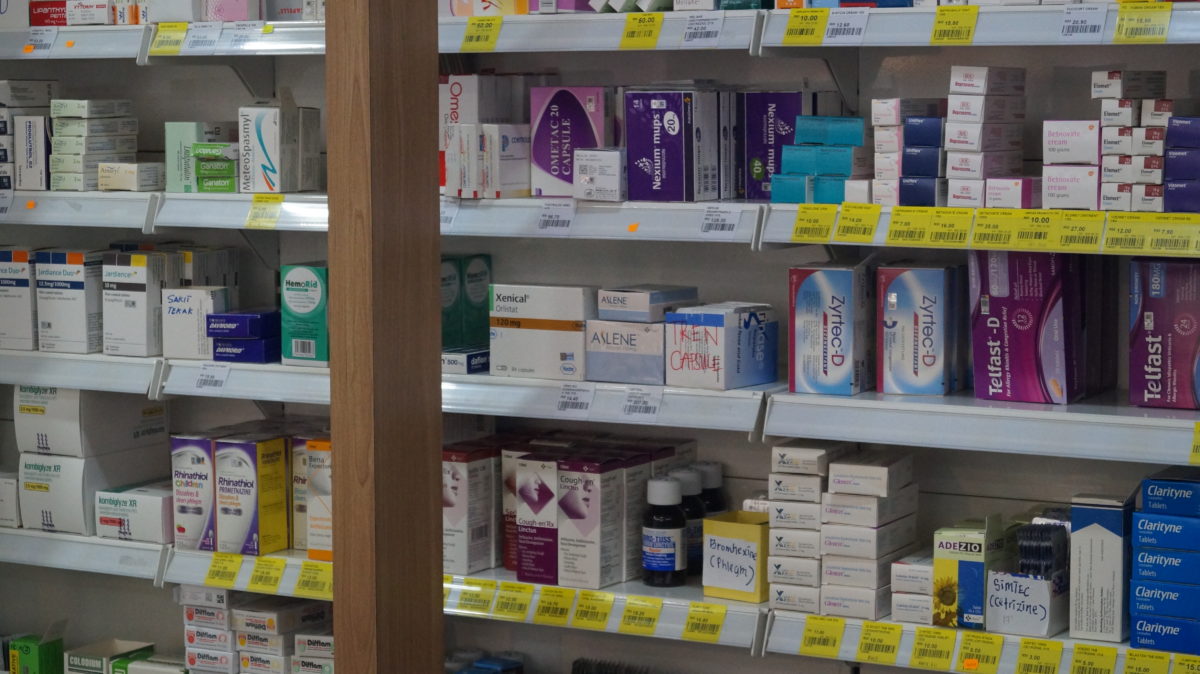KUALA LUMPUR, July 13 – Tapping into the government’s and private hospitals’ medicine supplies to cope with shortages is not a feasible solution for prolonged supply disruption, said the Malaysian Medical Association (MMA).
MMA president Dr Koh Kar Chai said medicine supply shortage is a recurring issue, with the Omicron variant and reopening of borders that exacerbated demand for medicines for fever, cough, cold, and sore throat.
“Currently in Malaysia, we see supply disruptions which are sporadic and are at times location-specific. All these give rise to a logistical nightmare for the suppliers as well as the purchasers, as one never knows when a medicine may suddenly become unavailable in the market.
“Doctors have been using alternatives to the type of medicines which they use regularly. These are viable choices for treatment, but impose stress on the doctor who has to continually source for alternative medical supplies,” Dr Koh said in a statement today.
Dr Koh said the sudden increase in demand had forced manufacturers to scale up their production, resulting in “immense” logistical and resource issues.
“Coupled to all these is a shortage of raw materials for the production of medicines. Apparently, this is not isolated to Malaysia alone. Looking at reports, it is also seen in many other countries,” Dr Koh said.
Commenting on the type of medicines that are in short supply, Dr Koh described the situation as fluid, with the supply of different medications being disrupted at different times and at various locations.
“There have been allegations that there are big buyers making large purchases hence depriving the smaller clinics of their stocks. We hope there is no truth to this and that supplies can be shared out in the market so that patients will have access to much-needed medicines,” Dr Koh said.
Utusan Malaysia yesterday reported the potential closure of about 11,000 private clinics and community pharmacies, should the shortage of basic medicines persist.
Speaking to the Malay-language daily, Medical Practitioners Coalition Association of Malaysia (MPCAM) president Dr Raj Kumar Maharajah said the shortage of basic medicines is expected to continue until year-end if serious attention is not given to resolve the matter.
Dr Raj Kumar was quoted as saying that private clinics typically see between 30 and 50 patients on average, with the number rising to 80 patients depending on the location and the doctor’s expertise.
“The majority of patients are given basic medication, which is very low (in stock) currently. We are in a pretty dire situation. Imagine a patient suffering from a relentless cough, cold, severe fever and stuffy nose. When you go to the clinic, there is no medicine. Can you think of how the patient feels,” Dr Raj said.
Meanwhile, Malaysian Pharmacists Society (MPS) Pahang chairman Abd Aziz Jamaludin was quoted as saying that the situation has hit a “critical point”.
“Patients at community pharmacies are increasing every day, but the supply of basic medicines is dwindling and many (drugs) are out of stock.
“If this problem continues for another two months, what can we sell? Sales will definitely fall and some pharmacies may have to close because there is no medicine,” Abd Aziz said.
CodeBlue previously reported on the medicine shortage problem in Malaysia at length, with scarcities being reported by private clinics and procurement pharmacists at private hospitals since May – much earlier than conventional shortages that typically occur towards the end of the year.
The shortages reported recently extend to several antibiotics; over-the-counter medicines for fever, flu, and cough and cold; children’s syrups, including critical asthma medications; and even seizure and central nervous system-related medication for mental or brain conditions like epilepsy, anxiety, attention deficit hyperactivity disorder (ADHD), and Parkinson’s disease.
The Malaysian Association of Pharmaceutical Suppliers (MAPS), which represents local pharmaceutical importers, noted that Malaysia is particularly vulnerable to global supply chain disruptions because Malaysia is a net importer of pharmaceuticals. Malaysia imports finished pharmaceutical products, as well as APIs and pharmaceutical intermediates that are needed for the local manufacture of drugs.
Following the reports, Health Minister Khairy Jamaluddin issued a statement saying that MOH has opened its medicine stocks to private health care facilities that are facing drug shortages, with a mechanism for private clinics or hospitals to make requests to borrow medicine supplies from MOH facilities.
CodeBlue reported that medicine shortages affect health facilities disproportionately; private clinics and hospitals are more vulnerable to supply shocks due to their leaner inventory compared to MOH facilities. Both MOH and university hospitals also ration prescriptions to deal with drug shortages.








